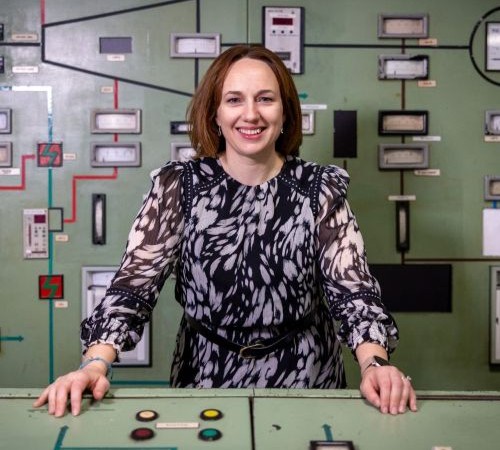Case Study overview
“I always wanted to make the world a better place,” says Fiona. Winning a place on the ELS programme helped Fiona see her ambitions in energy and transport were achievable. Having helped make central heating greener, she is now running Octopus Electric Vehicles, driving take-up of electric vehicles in the UK.
“The funding helped me develop skills and be able to do internships that I might not otherwise have been able to afford.”


Getting into gear
Fiona’s ELS programme interview gave her the idea to investigate hydrogen-powered cars. She used part of her ELS funding to go on a German language course before her work placement on hydrogen fuel cells at BMW in Munich. She also spent the following summer attending the World Hydrogen Energy conference in Japan, with five other ELS members, visiting the world’s first hydrogen and petrol station in Singapore, and test driving a hydrogen fuel cell vehicle in California with Toyota.
Interested in how to commercialise cleantech, Fiona honed her business skills as a consultant. She worked on strategic projects for energy companies and utilities, advising on investment decisions in oil and gas. “It was fascinating, but I knew I wanted to be working to create a smarter energy system powered by renewables,” she says.
A greener future
Fiona did a secondment with the UK government, looking at the future of the energy sector, before joining a start-up developing products to remotely control home heating systems, which led to her helping to launch the Hive thermostat and brand with British Gas. There, she decided how Hive would be sold and what features it would have. “That was super exciting and it’s now in nearly 2 million homes,” she says.
Between two maternity breaks to have her daughters, Fiona worked with smart meter companies, and became fascinated by how electric cars could be charged overnight when there is little energy demand. Following a conversation with the CEO of Octopus Energy about electric cars and demand response, she joined the renewable energy supplier.
Fiona focuses on how smart charging kit could accelerate adoption of electric vehicles. She runs a vehicle-to-grid (V2G) demonstration project, exploring how to optimise the energy system for drivers of electric vehicles. “It looks at allowing their car batteries to be used as energy storage to support the grid, charging up when there is abundant green energy and using a bi-directional charger to give back to the grid at peak times,” she explains. Fiona designed Octopus Electric Vehicles to help make it easy for drivers to switch to electric. It has now raised £1.4 billion of funding and leased 30,000 electric cars. It was voted by 500 staff as a Sunday Times Best Place to Work in 2024 and 2025.
The interviewers validated that my ambitions were achievable. Being given the award was confirmation of support. It was a great first boost and provided encouragement...
Advice
“Back yourself,” is Fiona’s big tip. She says the ELS programme has ‘turbocharged’ the projects she has wanted to do and believes everyone should put their name forward. “The worst thing that can happen is that you meet some interesting people in the interview process. What’s the best that can happen? Significantly more.”
So many pieces of the ELS programme have led me to where I am today.
Interested in participating in the Engineering Leaders Scholarship?
Visit the programme pages to find out more about how it could benefit you and your career.
